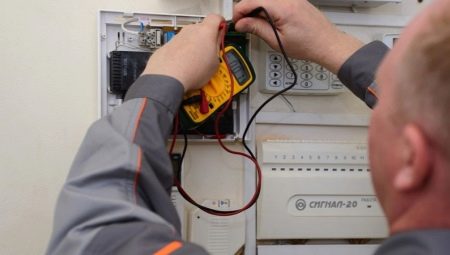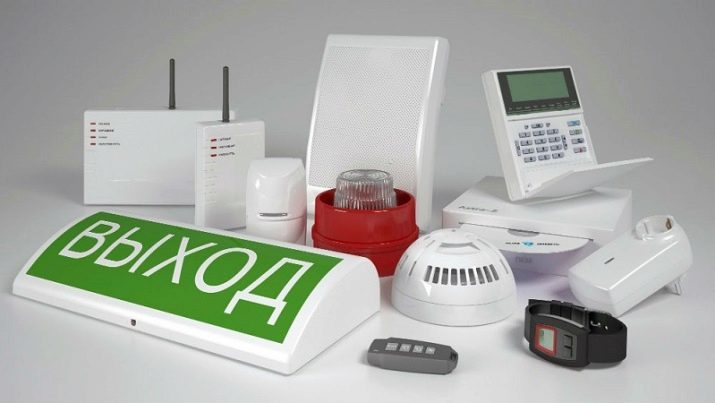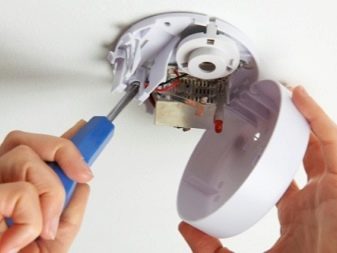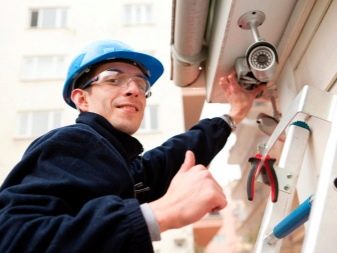All about electricians of security and fire alarm systems

Fire and security alarm electrician Is a person whose job is to install and regulate fire alarm systems, as well as to establish video surveillance mechanisms, sensors, specialized devices, etc. In the modern market, this position is in great demand. It requires special knowledge, without which it is simply impossible to work. Electricians are personally responsible for everything that happens to the devices.
Peculiarities
Several workers are engaged in servicing the OPS complexes at once - these are electricians, installers, adjusters and maintenance specialists, each of whom is assigned his own work area. The main advantage of the profession is high wages and prestige. By cons can be attributed to complex training (in order to get an education, you must know physics and electronics), imposed material and moral responsibility. The emergence of the latest technologies requires periodic professional development from an electrician of a security and fire alarm system.
This happens because new materials and equipment for installation are being produced, the very nature and content of labor is changing, and all this is necessary for safe work.

Responsibilities
In his activities, the OPS electrician adheres to job description Of the Russian Federation and instructions drawn up directly by the enterprise itself where he works. When applying for a job, you are familiarized with all the documents, as well as instructions.It contains a list of rights, requirements, duties and responsibilities that will be assigned to the employee. The working duties of an OPS fitter are as follows.
- Repair and maintenance of alarm systems.
- Inspection of the set of elements of the cable route.
- Cleaning the contacts, switches and other elements of the main and additional equipment.
- Installation of lines according to simple drawings and diagrams.
- Assembly of branch and terminal devices (couplings).
- With the help of special devices, the work done is checked and possible defects are eliminated.
- Installation work, service maintenance of structures and devices.
- Installation of detectors on building structures.
- Performing additional work, checking the functionality of systems.
The rights of an OPS fitter.
- The right to be provided with personal protective equipment, the necessary equipment and a workplace.
- The right to a comfortable working environment and the conditions stated in the employment contract.
- The right to provide information on problems identified during work at the enterprise, to the management.
- Right to Submit Troubleshooting Ideas.
Responsibility of the OPS fitter.
- For their direct responsibilities.
- For the performance or non-performance of work according to the job description.
- For non-compliance with safety requirements, fire safety.
- For causing any material damage to the company.


Requirements
The position of an electrician includes five categories - III, IV, V, VI, VII. Each of the categories has a tolerance for a certain front of work. III - this is the highest rank, greater responsibility and broader powers. A highly qualified employee must know everything that a low-discharge electrician knows and vice versa. The only exception is Vii category - there is minimal responsibility and not very complicated work that can be performed without any additional knowledge. According to the document, which describes all the requirements for an employee (it is called a professional standard), the main goal in the work of specialists is to guarantee the safety of the premises. It is achieved by installing security and safety systems.
The main work goals that are included in the professional standard.
- Preparation of low-current electrical radio equipment for security systems for installation and acceptance of low-current equipment to be installed. Preparation for installation and implementation of links of fasteners of low current equipment to be mounted. Preparation of electrical wires and structural elements.
- Installation of electric low-voltage communication parts, as well as switching devices that are designed for low-current equipment, as well as installation of cable route elements connecting mechanisms and boxes for a set of technical protection systems. Checking the installation of connections in accordance with engineering and design documents. Installation and testing of external communication systems to establish connection with the control lines of the central security system.
- Installation of low-current equipment for security systems, verification of installation and connecting elements of switching nodes in accordance with the terms of technical and design documents. Assembly of detectors and sensors of devices for various alarms - burglar, alarming and burglar-fire.
- Implementation of start-up and commissioning of already assembled security and fire systems, as well as the sequential formation of the last parts of low-current electrical radio equipment. Comprehensive implementation of starting and commissioning actions of the entire security system together with devices through which monitoring takes place, central monitoring, console devices through connecting channels and transmission lines. Performing start-up and commissioning of the entire television configuration in the security post.Commissioning and commissioning of the entire access control system together with monitoring devices. Execution of start-up and adjustment works of evacuation devices and computer local network.
Here you can also highlight the requirements for the professional training of an OPS electrician - this is compliance with the norms of SANPINs and GOSTs, knowledge of the devices and rules for servicing security and fire alarms, CCTV and power supply. The specialist must know the rules and procedure for checking, using special devices, equipment performance, types of malfunctions and ways to eliminate them. Individual requirements include good color vision, keen hearing, responsibility and conscientiousness at work, self-control, instant reaction and a stable vestibular apparatus.


Education
While undergoing professional training, an OPS electrician receives all the necessary knowledge for work and hones the acquired skills. To start learning, it is enough to have knowledge on the basis of intermediate or intermediate - special education.
The main condition for submitting documents - availability of a medical certificate, which states that there are no contraindications for working in this area. After completing a training program in special courses or in a vocational school, the fitter will receive a certificate.
In the future, it is not enough for the employee to have crusts with the received initial discharge, it is necessary regularly take retraining and advanced training courses... This can be done without interrupting work. Now there are many distance learning forms where you can go through theory. And you can work out the practice directly at the place of work. The duration of training may vary depending on the specifics of the enterprise and work experience.
After graduation and practical training, the student is issued a certificate with the assigned qualification category.
Place of work and salary
Installers of security and fire alarm systems can find work in organizations offering installation and maintenance services for low-current systems... Currently, the choice of organizations that provide a range of services for the design and maintenance of security systems is quite large - a structural subdivision of private security, EMERCOM of Russia, private security companies. Also, the skills of the profession are in demand at enterprises servicing technical security equipment or in the sale of security equipment.
Salaries in different regions may differ; on average, for the lowest qualifications, you can start earning from 15,000 rubles per month. The higher the grade, the more the electricians earn.








